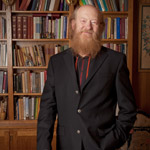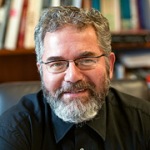Robert C. Neville is Professor of Philosophy, Religion, and Theology at Boston University. We invited him to answer the question “What is Philosophy of Religion?” as part of our “Philosophers of Religion on Philosophy of Religion” series.
Philosophy of religion is best described paradigmatically as philosophy that has something interesting and important to say about religion insofar as it addresses religion. The modern Western instances of Hume, Kant, Hegel, and Whitehead, among others, are paradigmatic. In each case, the philosopher developed a somewhat comprehensive if not systematic philosophy addressing many topics and arising from many motives and out of that philosophy made important contributions to understanding religion. To this list of greats we can add Marx and Nietzsche, who had comprehensive philosophies with negative but influential things to say by way of understanding religion. A number of intellectual projects relative to or derivative from this paradigmatic sense of philosophy of religion also deserve the title and important places in the public conversation that constitutes living philosophy of religion today.


